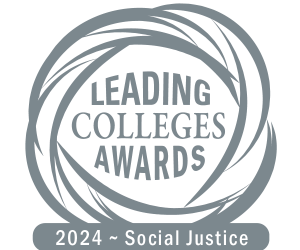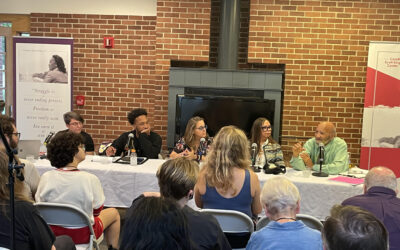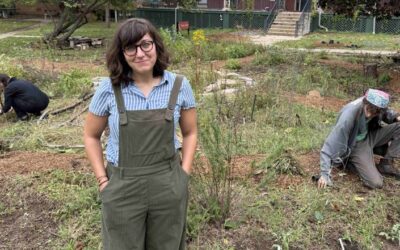On August 30, 2019, Antioch College assigned the broadcast license for its WYSO 91.3 FM radio station to Miami Valley Public Media Inc., the nonprofit organization created by the College to transfer control of WYSO to the greater Miami Valley community. While awaiting the recent approval of the license assignment by the Federal Communications Commission, Miami Valley Public Media had been operating WYSO under a management agreement with the College.
“This is certainly an outcome to be celebrated—a win, win, win: for the station, the College, and the community as we hoped and thought it would be,” said Antioch College President Tom Manley. “We are very proud of WYSO’s growth from a station founded by our students over 60 years ago, to being the region’s flagship National Public Radio member station for the Miami Valley. Both Antioch College and WYSO have grown and benefited from our relationship. This final step of assigning the broadcast license to Miami Valley Public Media permits both organizations to pursue their respective missions, while continuing to maintain the very healthy strategic partnership we have nurtured.”
Antioch College’s initiative to make WYSO a community asset by transferring assignment of the license to Miami Valley Public Media was announced on January 30, 2019. WYSO General Manager Neenah Ellis described the intervening period as one of intense preparation for the station. “Since April 1, every WYSO staff member has worked to create the infrastructure WYSO needs to operate independently,” said Ellis. “We’re grateful to the College for this opportunity and we tip our hats to the WYSO founders, whose vision for public service lives on. We are energized and we’re ready. And, we intend to thrive. “
$3,500,000 was raised from generous donors and supporters to partially reimburse the College for its decades of investment in WYSO. Ellis said that WYSO will continue to work with Antioch College on projects of value to students, faculty, staff, and alumni.
In Helping WSYO Achieve Independence Antioch College Honors Enduring Educational “Landmarks”
By Tom Manley, President
In late January Antioch College announced plans to make its radio station, WYSO, an independent, community-owned organization. This week the last milestone in that journey was completed as the Federal Communication Commission (FCC) officially transferred the broadcasting license to a now wholly independent, non-profit community organization, Miami Valley Media.
This is certainly an outcome to be celebrated—a win, win, win: for the station, College and community as we hoped and thought it would be, and for which we are deeply grateful to those whose concerted efforts behind the scenes brought it to fruition. Among those was Antioch College trustee Sharon Neuhardt and her law firm, Thompson Hine; Board chair, Maureen Lynch; WYSO staff, Neenah Elis and Luke Dennis; The Dayton Community Foundation’s Michael Parks; and the many generous donors and lead donor Charles Berry.
But there is more to understanding and appreciating this story than the careful planning and complicated legal work conducted behind the scenes these past eighteen months. First, one must know that the timeline was a bit longer, 62 years, in fact; for it was in 1957 that a trio of Antioch College students decided to create a community radio station and did. WYSO was born from their vision and agency and is just one of thousands of examples of how the College’s students have owned their educations and learned experientially through taking initiative over the years.
Secondly, even though it was always the intention of its founders for WYSO to become independent and community-owned, there was no guarantee that it would happen. As Neenah Ellis, WYSO’s general manager has pointed out, there are more than a few cases in recent times where colleges, universities or other organizations took purely transactional/financial approaches to the transfer of their FCC broadcasting licenses, effectively putting them on the open market to the detriment of the local community.
As I see it, the educational philosophy that made it possible for students to exercise such agency in their learning and at their college, and the socially progressive values that guided the Antioch College trustees to ensure WYSO was secured as an independent, community-owned resource were vital to the positive end-result here. In my short time at the College, and in Yellow Springs/Dayton area, I observe an ethos that encourages thinking about community as a created and built reality rather than an abstract principle. No doubt this belief has deep historical roots, but at Antioch College it was deepend tremendously starting in 1920 when Arthur Morgan became its president.
A Dayton-area innovator and engineer known for his flood control work, Morgan was an unabashed champion of small communities. He saw them as essential building blocks for viable and renewable, national democracy and economy. A systems-thinker and progressive, he believed that in order for communities to thrive, they needed to develop a healthy degree of self-reliance in terms of their economic, cultural/intellectual, and governance practices. He also believed in the same things for colleges and, therefore, brought to Antioch a very different vision for how a college education should unfold.
Antioch students, he argued, needed more than classroom knowledge to participate productively in society; they required actual knowhow in building communities in order to work in and for them. With Morgan’s leadership, the College became a laboratory for growing and testing ideas of how community might work better. The College also became an incubator for growing local businesses like Yellow Springs Instrument, Morris Beam Foundry, and eventually WYSO, among others; and the first liberal arts college to require students to take real world jobs at regular intervals throughout their years of study. And, 100 years later that innovation, co-op as it is called, continues to transform the lives of Antioch students, many of their employers, and organizations in which they work.
Today, enduring elements of Morgan’s vision along with those of many others including Antioch’s first president, Horace Mann, and Coretta Scott King, alumna ’51, are present and influential at the College. They manifest themselves in our three guiding “landmarks” —Own Your Education. Learn Experientially. Act for Justice.— all of which find resonance with alumni from past eras. I believe Morgan, Mann, and King would each recognize these standards proudly. And more than that, I think they would delight in the example of how these principles were translated by students into a thriving, nationally regarded community radio station and applied to ensure its future.



